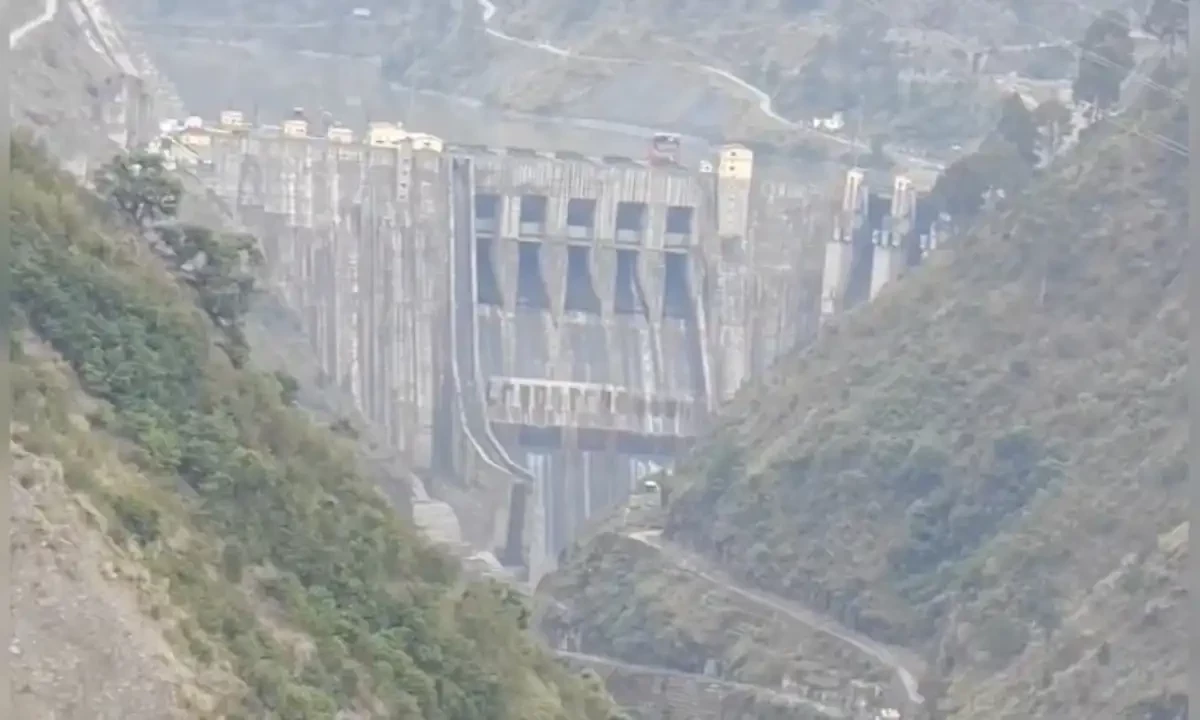India’s water flow suspension from Baglihar Dam escalates tensions post-Pahalgam attack
In a significant escalation following the attack in Pahalgam, India has announced a halt to water flow from the Baglihar Dam on the Chenab River into Pakistan as part of its suspension of the Indus Waters Treaty.
Reports indicate that similar actions may be taken at the Kishanganga Dam on the Jhelum River.
Indian sources characterize this move as temporary, but its political implications are seen as dangerous and provocative. Experts suggest that this reflects yet another failed attempt by India to pressure Pakistan.
The Indus Waters Treaty, which is internationally recognized, allocates the Chenab and Jhelum rivers to Pakistan, allowing India limited rights for non-consumptive uses, such as electricity generation and restricted agricultural purposes.
Despite Pakistan’s strong objections, India has continued to construct both the Baglihar and Kishanganga dams in Kashmir. Pakistan has consistently alerted the international community and the World Bank about treaty violations.
Although some objections were dismissed, the World Bank acknowledged contentious aspects of India’s dam designs, particularly the gated spillway and height of Baglihar.
In the case of Kishanganga, India was found to have violated international agreements by diverting water from one river to another, leading Pakistan to file a complaint with the World Bank.
The Court of Arbitration ruled in favor of India, causing significant disappointment in Pakistan.
While the recent decision to stop water from the Baglihar Dam is seen as a temporary measure—since the treaty limits the amount of water that can be stored experts warn that any permanent stoppage would be regarded as an “act of war.”
Read more
India’s water flow suspension from Baglihar Dam escalates tensions post-Pahalgam attack
What is reality of Indus Water Treaty between Pakistan, India?
Pakistan calls for emergency UNSC meeting over Indian aggression
Pakistan has issued a stern warning that if India continues to block water flow, it will suspend not only the Indus Waters Treaty but all bilateral agreements, including the Shimla Agreement.
This situation is viewed as a form of open water terrorism by India, endangering regional stability and the lives of millions of Pakistanis.
The international community is urged to recognize India’s obstinacy, especially as it has already suppressed minority rights and now threatens the water security of its neighbors.
Pakistan has emphasized that even a single drop of water withheld would represent open aggression, requiring a response that goes beyond mere words to concrete action.
For the latest news, follow us on Twitter @Aaj_Urdu. We are also on Facebook, Instagram and YouTube.























Comments are closed on this story.